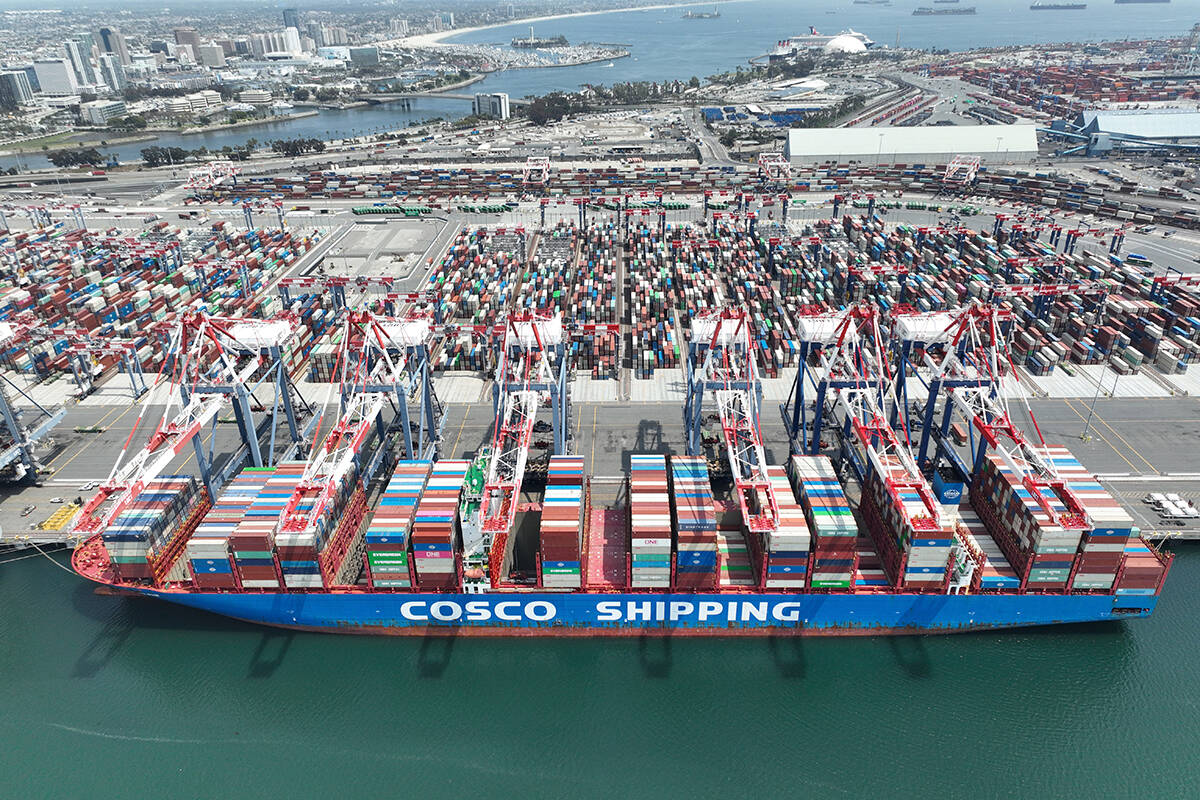Mexican bean growers worry their industry will be destroyed when tariffs are eliminated in 2008 through the North American Free Trade Agreement.
“Mexico does not have any possibility to compete with United States and Canada, therefore this branch of production is condemned to disappear,” said Cruz Lopez-Aguilar, leader of Mexico’s National Farmers Confederation.
Lopez-Aguilar made those comments last month during a meeting with the National Dry Beans Growers Union, in which he predicted a collapse in domestic bean prices and massive job losses if agricultural policy is not corrected, according to a report compiled by the U.S. Embassy.
Read Also

U.S. softens fees on Chinese shipping
The U.S. starts charging new fees on Chinese ships on Oct. 14. What are the ramifications for their ag exports?
Analysts say the removal of the tariffs could create substantial opportunity for Canadian bean exporters but scoffed at the suggestion it will abolish Mexico’s industry that produces 1.2 million tonnes per year.
“That’s hyperbole. That’s political exaggeration,” said Stat Publishing editor Brian Clancey.
“Don’t forget, the lefties are really sensing their opportunity in Mexico.”
Beans are a political hot potato in a country with 570,000 bean growers.
Most Canadian and U.S. crops had duty-free access to Mexico immediately following implementation of NAFTA.
Beans were one of the few exceptions, protected for a further 14 years by a quota and tariff system.
Mexican politicians insisted on the clause, for fear that their growers would be overwhelmed by competition from more efficient producers in other parts of North America, who generate superior per acre yields.
So when NAFTA came into effect on Jan. 1, 1994, Canadian bean growers were allowed to export only 1,500 tonnes of the crop to Mexico. Anything outside that was hit with a steep 133.4 percent duty.
Over the years the trade barriers have been scaled back. In 2007, the quota is set at 2,203 tonnes with an out-of-quota duty of 11.8 percent. In 2008 there will be no restrictions for Canadian or U.S. product.
“Canadian dry bean exports to Mexico are expected to trend upwards during the next decade as the tariff rate is lowered and eliminated in 2008,” said Stan Skrypetz of Agriculture Canada’s market analysis division in a Dec. 15 report.
Exports to the world’s largest per capita consumer of beans have already been picking up steam. Canadian firms shipped a record 6,626 tonnes to Mexico during the 2005-06 crop year.
“We’re experiencing a good increase. Thousands of tonnes over what it had been,” said Clancey, who added there is plenty of opportunity to pick up the pace of growth under a tariff-free environment.
Blair Roth, special crops manager for Agricore United, one of Canada’s largest bean exporters, downplayed the hype coming out of Mexico about how big this market could become.
“We’ve heard that talk before,” he said.
“I think we’ll see some additional volumes but I don’t expect it to be overnight.”
Initially, he anticipates most of the additional sales will come at the expense of the Americans who managed to negotiate the lion’s share of the Mexican quota under NAFTA.
Once the border opens up to true competition, Roth expects some of that pinto and black bean business will shift to Canada, although he noted Canadian exporters must pay more for freight than their U.S. counterparts.
Roth was unwilling to forecast what tonnage will head south in the post-tariff environment but he doesn’t expect anything near the bean market revolution being forecast by Mexican growers.
That said, Canadian growers could benefit from the winding down of the tariffs as early as this year depending on Mexico’s supply and demand situation.
“If they’re in a net deficit situation it could absolutely make a significant impact,” said Roth.
But just in case growers think it looks like smooth seas ahead, Skrypetz warned that might not be the case.
“One concern is that the government of Mexico will be pressured by producers to apply non-tariff barriers to limit imports once the tariffs are eliminated,” he said in his Dec. 15, Bi-weekly Bulletin on beans.

















